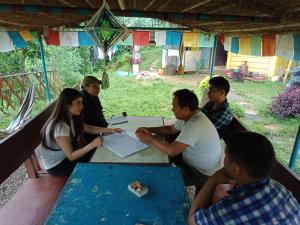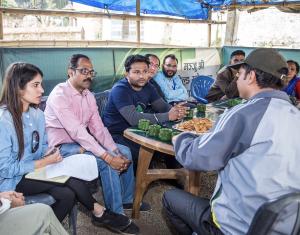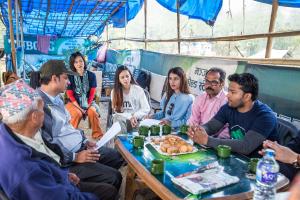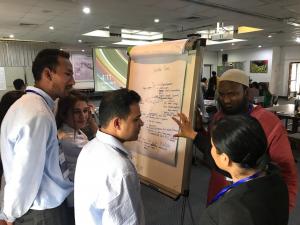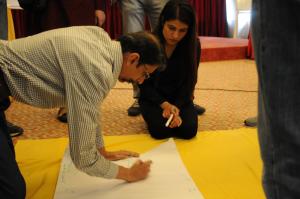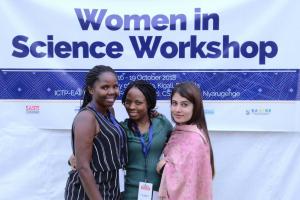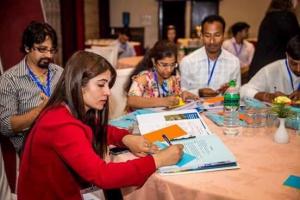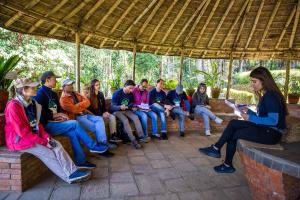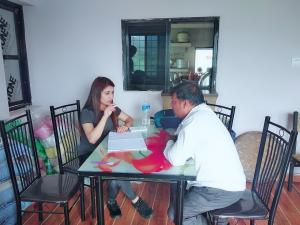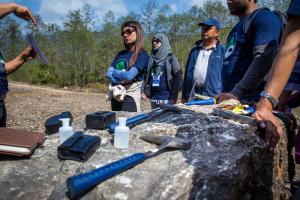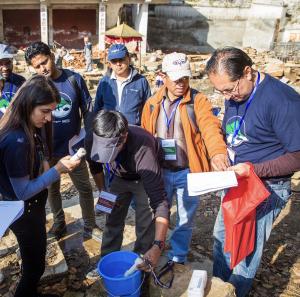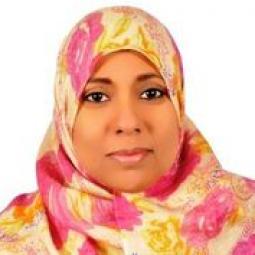Meet the Fellows: Kausila Timsina
September 20, 2019
A PhD Fellow from Bhutan is studying water flow in river basins in order to plan more sustainable hydropower projects.
Kausila Timsina, a 2015 fellow from Bhutan, is currently completing a full-time PhD fellowship at Sikkim University in India, where she is researching the variability of water flow in the Teesta River Basin resulting from hydropower projects there; read about how her research will help to inform the development of future hydropower projects, and reduce negative impacts on land productivity and social and cultural practices, below.
 How did you learn about the OWSD fellowship, and what difference has it made to your career?
How did you learn about the OWSD fellowship, and what difference has it made to your career?
I learned about the OWSD fellowship from a mailing list for fellowship alerts. I had already received an opportunity to do my PhD at Sikkim University in India, so the OWSD fellowship seemed just right for me. Very fortunately, I got awarded the fellowship in 2015. The fellowship has not only made me financially able to do my PhD research, but also gave me opportunities to make connections worldwide, to learn from the experts in my subject, and to present my research findings at the world's best conferences, such as the 2018 IEEE eScience conference. It has also helped me to get various training and networking opportunities.
What are you researching? What first made you interested in this subject?
Currently I am working on issues relating to the effects of climate change, hydropower development, and water resource management on ecology and the environment in Bhutan and across the Eastern Himalayas. These effects include changes to land use and land cover (which I assess using GIS and Remote Sensing), and increasing vulnerability of socio-economic livelihoods. My PhD research focuses specifically on the Teesta River in Sikkim, India, which was of great interest to me because of constant talk and debates in this region about the construction of hydropower and whether it is the cause of drinking water sources drying up, and of catastrophic weather events like flash floods in Bhutan and Nepal and cloud bursts in Sikkim. During my stay in Sikkim as a master's and now a PhD student, this has been a huge issue and source of conflict. I therefore wished to understand the impact of climate change and manmade structures on water and livelihoods, using scientific methods.
 Has anything surprised you about your research experience?
Has anything surprised you about your research experience?
What has surprised me is the severity of the impact that extreme weather events could have on water resources, like the drying up of a number of springs. The changing flow of the river Teesta has a huge impact on people, and there are many differences in opinion about the need for hydropower construction, especially given that Sikkim is a place with a lot of social, religious and environmental sensitivities. It has become clear to me how important sustainable hydropower development is in order to maintain social stability, water quality and income generation for the state.
What are your plans for the future? What will you do after you complete your PhD?
After receiving my PhD I wish to work as part of a research organization in order to gain more knowledge and skills about water resources, and eventually to open an institute on water resources back in my country. I also hope to establish an OWSD National Chapter in Bhutan so that many other Bhutanese women can benefit from opportunities for scientific education and research.
THANK YOU, KAUSILA!

